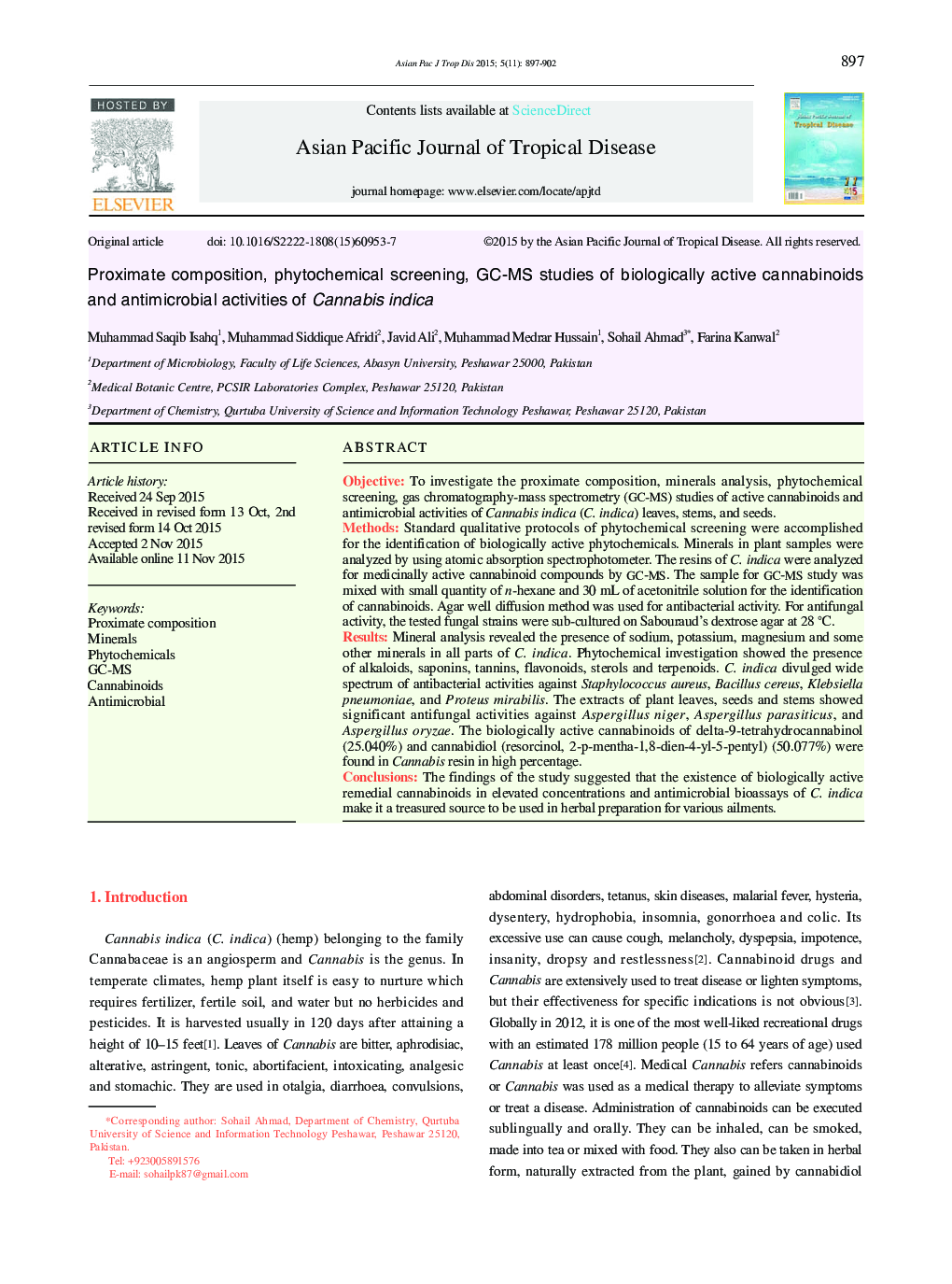| کد مقاله | کد نشریه | سال انتشار | مقاله انگلیسی | نسخه تمام متن |
|---|---|---|---|---|
| 3454077 | 1595947 | 2015 | 6 صفحه PDF | دانلود رایگان |

ABSTRACTObjectiveTo investigate the proximate composition, minerals analysis, phytochemical screening, gas chromatography-mass spectrometry (GC-MS) studies of active cannabinoids and antimicrobial activities of Cannabis indica (C. indica) leaves, stems, and seeds.MethodsStandard qualitative protocols of phytochemical screening were accomplished for the identification of biologically active phytochemicals. Minerals in plant samples were analyzed by using atomic absorption spectrophotometer. The resins of C. indica were analyzed for medicinally active cannabinoid compounds by GC-MS. The sample for GC-MS study was mixed with small quantity of n-hexane and 30 mL of acetonitrile solution for the identification of cannabinoids. Agar well diffusion method was used for antibacterial activity. For antifungal activity, the tested fungal strains were sub-cultured on Sabouraud's dextrose agar at 28 °C.ResultsMineral analysis revealed the presence of sodium, potassium, magnesium and some other minerals in all parts of C. indica. Phytochemical investigation showed the presence of alkaloids, saponins, tannins, flavonoids, sterols and terpenoids. C. indica divulged wide spectrum of antibacterial activities against Staphylococcus aureus, Bacillus cereus, Klebsiella pneumoniae, and Proteus mirabilis. The extracts of plant leaves, seeds and stems showed significant antifungal activities against Aspergillus niger, Aspergillus parasiticus, and Aspergillus oryzae. The biologically active cannabinoids of delta-9-tetrahydrocannabinol (25.040%) and cannabidiol (resorcinol, 2-p-mentha-1,8-dien-4-yl-5-pentyl) (50.077%) were found in Cannabis resin in high percentage.ConclusionsThe findings of the study suggested that the existence of biologically active remedial cannabinoids in elevated concentrations and antimicrobial bioassays of C. indica make it a treasured source to be used in herbal preparation for various ailments.
Journal: Asian Pacific Journal of Tropical Disease - Volume 5, Issue 11, November 2015, Pages 897-902